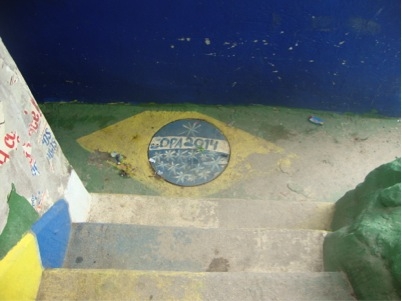This thesis aims to understand the moral world of the police by focusing on the everyday life at a military police station operating in a favela in Rio de Janeiro, Brazil. The plurality of moral issues in the work of the police is visible in the study of the forms of violence used by the police, the constant (dis)orders they generate, as well as the different tensions between police and community. The methodological process of this research is comprised first of an ethnography of a military police station, while at the same time taking into account the deep-lying historical aspect of the subject. This police station is attached to the Pacifying Police Unit (Unidade de Polícia Pacificadora), a section of the military police aimed at “regaining the territories lost to the drug trade,” the predominant police in the hundreds of favelas in the city. Guided by principles of proximity, the aim of this “pacification” model is to maintain the social and moral order established by the police. Despite accusations of corruption, abuse of power, and an active drug trade, this section of the police hopes to reformulate the work of the police, particularly in communities historically “forgotten” by the State. Thus the policeman’s everyday life is carried out in a context of operational, political, historical and institutional transformation.

An alley of a community decorated with the motive for the World cup 2014.
The relation between the military police and residents features both repressive actions (combat against drugs, heavily armed traffic, and territorial reoccupation) and humanitarian actions (courses, celebrations, marriages and other forms of social aid). Thus the analysis of local circumstances is an opportunity to bring to light tensions, contradictions and ambivalent actions between a universalist discourse (human rights, for example) held perhaps inside the police institution (with training aimed at tempering violent attitudes among policemen) and society (NGOs, media, etc.), which demands a less lethal police force, but paradoxically, a more and more virulent fight against insecurity and drug trafficking. In this thesis, analysis of the local context places morality in particular as a central element for analysis. Local conditions in Rio de Janeiro make the police a priority institution for the study of forms of racial domination and class in Brazil, which continue to be framed in both post-colonial and post-dictatorial rationales. Research into the police force also unveils moral issues as well as the forms of government of the most precarious populations in the Latin-American countries.
An ethnographic method:
Fieldwork included a year’s ethnography (2014-2015) as well as supplementary visits to the terrain. Aside from these observations, formal and informal interviews held with soldiers, high-ranking members of the military police, civil police, local activists, members of the local community, public service agents (health, social services, etc.) ad-hoc observations at a Delegacia (police civile). Additional documentation was collected at local and federal libraries, as well as observations at the National Congress of Deputies in Brasilia on the subject of the police institution and particularly, on the use of moral discourse in issues of public security. Finally, access to the Library of Congress made possible a historical review thanks to newspaper archives.









